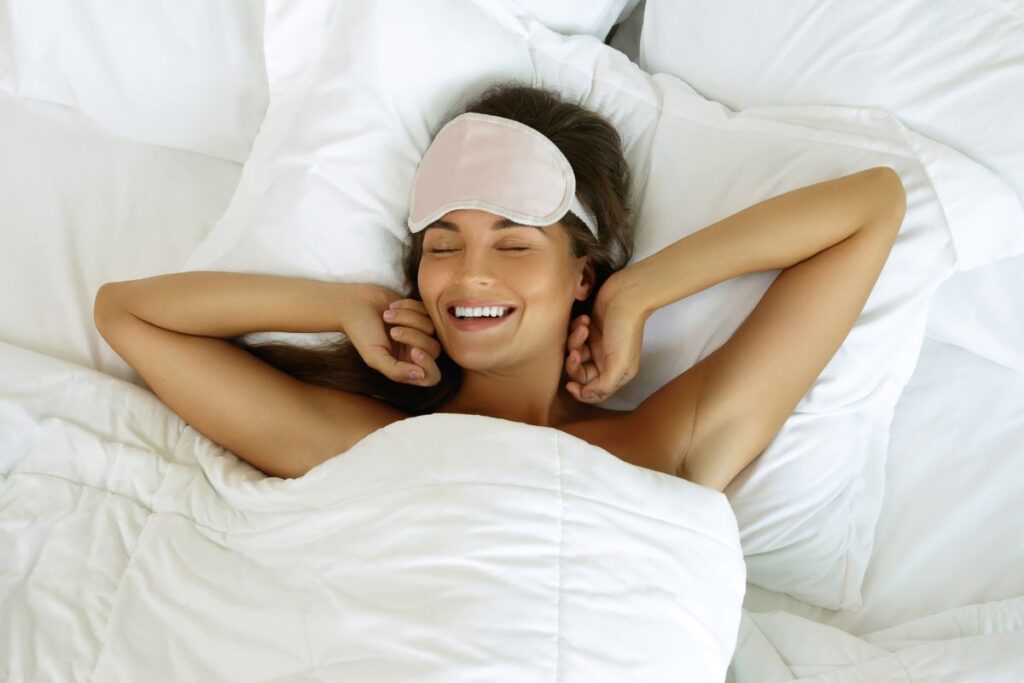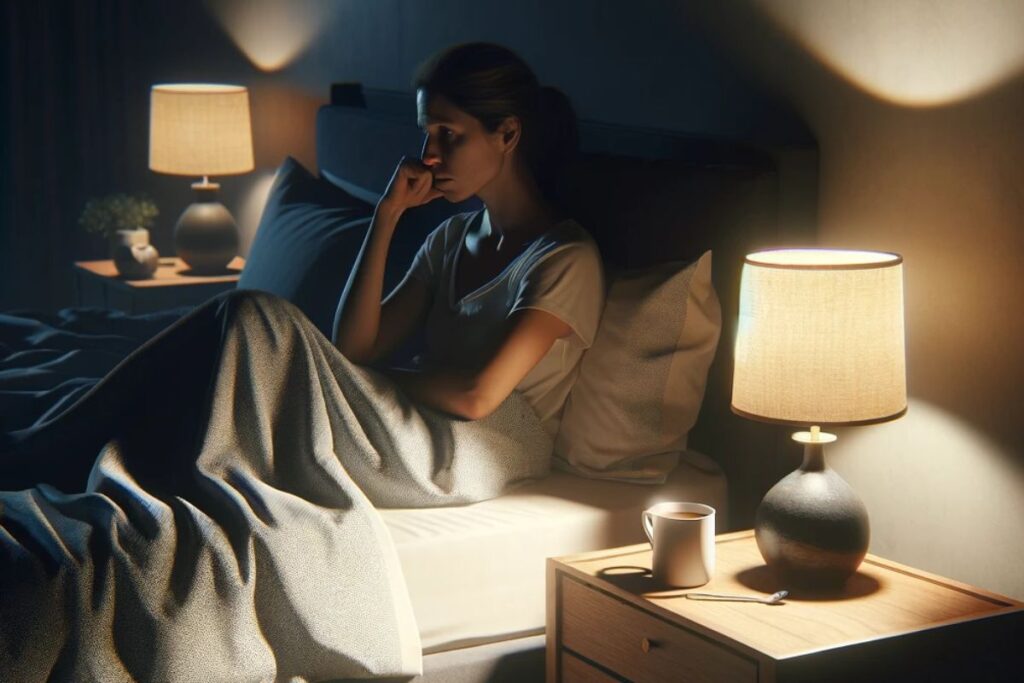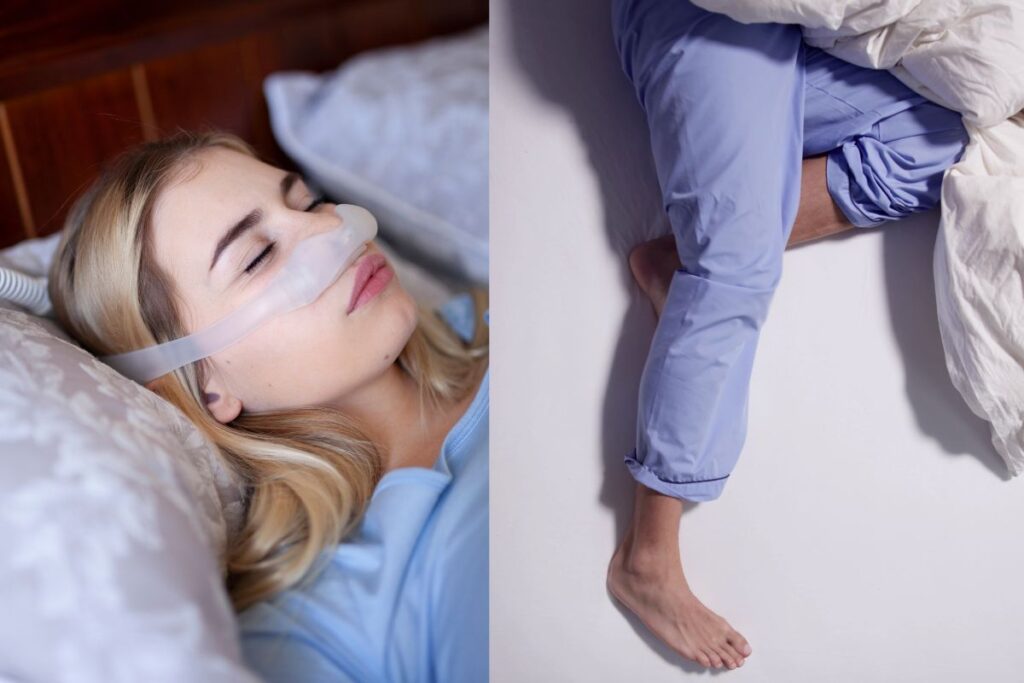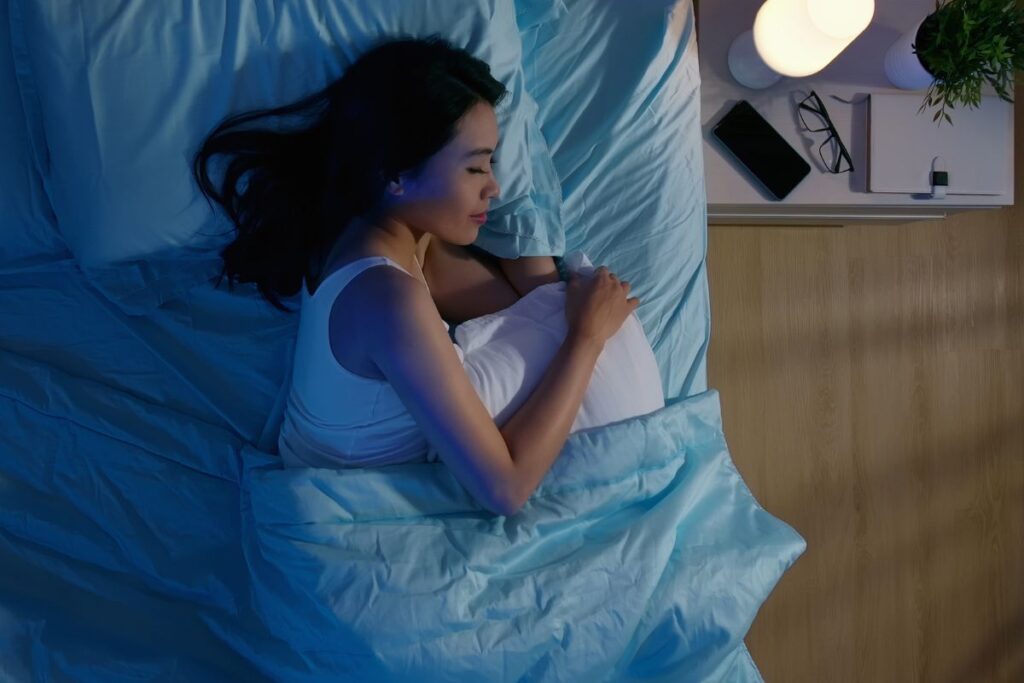Sleep Better Tonight: Expert Guide to Optimize Your Sleep & Wake Up Refreshed

In an era where the quest for productivity often encroaches on our rest, understanding how to optimize sleep has never been more critical. For those tossing and turning, waking up tired, or simply seeking to improve their sleep quality, this guide is your beacon towards restorative slumber.
Drawing from the wealth of knowledge shared by our podcast host, Anthony Hartcher in a recent me&my health up podcast episode, we delve into the science and strategies for enhancing sleep, ensuring you wake up rejuvenated and ready to face the day.
Watch the full podcast episode here:
The Science of Sleep Efficiency
Sleep efficiency is a crucial concept, highlighting the difference between time spent in bed and actual sleep obtained. Adults should aim for seven to nine hours of restorative sleep, but being in bed for 10 hours doesn’t guarantee 10 hours of sleep.
Modern devices like the Oura Ring, Apple Watch, or Fitbit can help track your sleep patterns, offering insights into how well you’re really resting.
The Alarming Sleep Statistics in Australia
A staggering 40% of Australians struggle to achieve the recommended 7-9 hours of sleep, with 59.4% experiencing symptoms such as trouble falling asleep, staying asleep, or waking too early at least 3-4 times a week. The SleepFit report, involving 4000 participants, revealed that 37% cited their bedrooms being either too hot or cold as a significant issue, 20% were interrupted by children, and 17.5% were affected by noise.
The Melbourne Sleep Disorders Centre (MSDC) highlights a concerning trend in behavioural industries that view minimal sleep as a constructive characteristic. Shockingly, 22% of people work before going to bed, with 69% of them suffering from sleep problems.
Furthermore, 40% of Australians consume alcohol at bedtime, potentially compromising both health and sleep behaviour. The Australian Epidemiological Association (AEA) warns that poor sleeping habits can increase the risk for long-term health conditions by 20-40%.
The Foundation of Good Sleep

Optimizing sleep starts with your daytime activities. Exposure to natural light in the morning is crucial. It helps regulate our body’s production of melatonin and cortisol, setting a natural rhythm that promotes wakefulness during the day and restfulness at night.
Engaging in regular exercise also plays a significant role. Physical activity helps build up adenosine in the body, which increases the pressure to sleep, making it easier to fall asleep at night.
Diet and Sleep
What and when you eat significantly impacts your sleep quality. Consuming most of your calories earlier in the day and opting for a lighter evening meal can enhance your sleep. Intermittent fasting, with an emphasis on reducing evening calorie intake, aligns with our natural circadian rhythms, promoting better sleep.
The Role of Caffeine

Caffeine is a known stimulant that can disrupt sleep by blocking adenosine, a chemical that makes us feel sleepy. Limiting caffeine intake, especially in the afternoon and evening, can significantly improve sleep quality.
Addressing Common Sleep Issues

While optimising sleep hygiene and incorporating the strategies mentioned above can significantly improve sleep quality for many, some individuals may face specific sleep challenges that require additional attention. Here’s a brief overview of some common sleep issues and potential solutions:
Snoring
Snoring can disrupt your sleep and the sleep of your partner. If you snore regularly, consult a doctor to rule out any underlying medical conditions like sleep apnea. Treatment options for snoring may include lifestyle changes, nasal sprays, or devices that help keep your airway open during sleep.
Sleep Apnea
This sleep disorder is characterised by pauses in breathing during sleep, leading to fragmented sleep and daytime fatigue. Symptoms of sleep apnea may include loud snoring, gasping for air during sleep, excessive daytime sleepiness, and morning headaches.
If you suspect sleep apnea, consult a doctor for diagnosis and treatment options. Treatment typically involves using a continuous positive airway pressure (CPAP) machine, which delivers constant air pressure through a mask to keep your airway open during sleep.
Restless Legs Syndrome (RLS)
This condition causes an irresistible urge to move your legs, often at night, making it difficult to fall asleep and stay asleep. Symptoms of RLS may include tingling, burning, or itching sensations in the legs, especially at night or when resting.
If you experience RLS symptoms, talk to your doctor for diagnosis and management strategies. Treatment options may include medications, iron supplements, and lifestyle modifications like applying heat or massage to the legs before bed.
Preparing for Sleep
Evening Routine
Creating a conducive sleep environment is essential. This includes:
- Cooling Down: Our core body temperature needs to drop for us to fall asleep. Taking a hot bath or shower can help achieve this paradoxically by drawing heat away from the core to the surface of the body.
- Room Temperature: Keeping your bedroom around 18 degrees Celsius, depending on your metabolic rate, can facilitate better sleep.
- Darkness: Minimising light exposure in the evening is crucial. Using blackout curtains or a sleep mask can block out light, signalling to your body that it’s time to sleep.
Technology and Light Exposure
Reducing exposure to blue light from screens in the evening is critical. Opt for dimmer, warmer lights and consider using apps or settings that reduce blue light on devices.
Sleep Hygiene Practices
- Consistency: Going to bed and waking up at the same time every day, even on weekends, helps regulate your body’s internal clock.
- Mindfulness and Relaxation: Engaging in mindfulness or relaxation techniques in the evening can help calm the mind, transitioning you into a state conducive to sleep.
- Journaling: Writing down thoughts or tasks for the next day can help clear your mind and reduce the anxiety that often prevents sleep.
Advanced Tips for Optimizing Sleep
- Sleep Tracking: Use a sleep tracker to gain insights into your sleep patterns and identify areas for improvement.
- Dietary Adjustments: Consider your intake of foods and substances that can affect sleep, like caffeine and alcohol.
- Professional Guidance: If sleep issues persist, seeking advice from a healthcare professional can provide tailored strategies based on your specific needs.
Conclusion
Prioritising sleep is an investment in your overall health and well-being. By establishing good sleep hygiene practices, incorporating healthy lifestyle habits, and addressing any underlying sleep issues, you can achieve better sleep quality and wake up feeling refreshed and energised. Remember, consistency is key. Be patient and persistent with your efforts, and you’ll be well on your way to unlocking the power of sleep and living a healthier, happier life.
Disclaimer: The information provided in this blog post is intended for educational purposes only and should not be construed as medical advice. Always consult with a healthcare professional before making any changes to your sleep routine or addressing any sleep concerns.
Struggling to achieve the restorative sleep you deserve?

At me&my wellness, we understand that sleep is a cornerstone of holistic health. Our tailored health coaching is designed to align with your unique health and wellness goals, ensuring you not only sleep better but also live better. Ready to transform your nights and days? Book a 15-minute FREE consultation with us today and take the first step towards holistic well-being.


